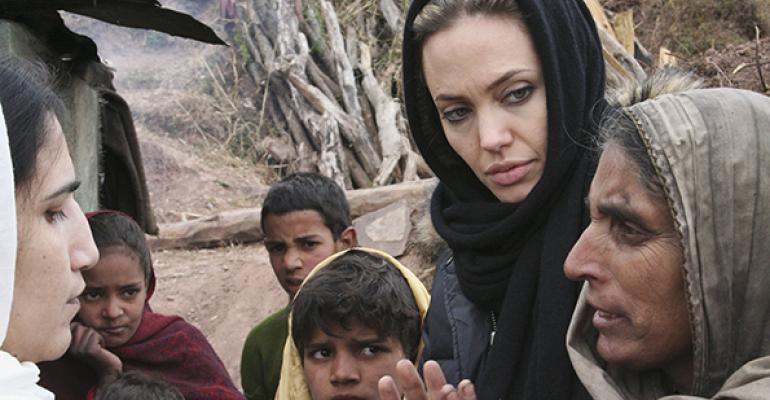In 2015, the United Nations adopted the 2030 Agenda for Sustainable Development and established a set of 17 Sustainable Development Goals. Let’s put these new goals into a good news/bad news context.
Good News
Between 2000 and 2015, the world made enormous progress on some of its most pressing problems. For example:
- The global mortality rate for children under aged five declined by more than half—from 90 deaths per 1,000 live births to 43 deaths.
- The number of people living in extreme poverty (on less than $1.90 per day) declined by more than half—from 1.9 billion in 1990 to 836 million in 2015.
- The number of primary school-age children who weren’t in school fell by almost half—from 100 million in 2000 to an estimated 57 million in 2015.
- Global tuberculosis programs saved an estimated 37 million lives between 2000 and 2013.
- The global malaria incidence rate fell by an estimated 37 percent. The malaria mortality rate fell by 58 percent. More than 900 million insecticide-treated mosquito nets were delivered to countries in Sub-Saharan Africa.
- Since 1990, 1.9 billion people gained access to piped drinking water.
Much of this progress is credited to the efforts of governments, businesses and philanthropists focused on and propelled by the United Nation’s previous set of eight Millennial Development Goals approved in 2000.
Bad News
Now, the challenges. Despite impressive global progress, much work remains to be done. For example:
- Almost 800 million people were undernourished in 2014 to 2016.
- Many people are still dying from preventable causes, including in 2015, 303,000 women during pregnancy or childbirth and 5.9 million children under aged five.
- In 2015, nearly one in three women between 20 and 24 years old reported that they were married before age 18.
- More than one billion people still live without electricity.
- In 2012, one in 10 children worldwide were engaged in child labor; more than half of them (85 million children) were exposed to hazardous work.
- The proportion of people being held in detention without trial or sentencing was 31 percent in 2013 to 2015.
- War, violence and persecution led to the displacement of 65.6 million people from their homes by the end of 2016.
- In 2016, countries around the world spent nearly $1.7 trillion on military expenditures, including 36 percent of this amount by the United States.
To build on previous success and address persistent issues, the United Nations recently adopted the 17 new SDGs.
“Ours can be the first generation to end poverty—and the last generation to address climate change before it is too late,” said Ban Ki-moon, former U.N. Secretary-General, in announcing the goals.
SDGs
The SDGs are more specific and inclusive than the previous MDGs. They offer a detailed roadmap for the world’s governments, businesses and philanthropists to make essential and significant progress on the continuing challenges that threaten billions of people—and the planet itself.
The 17 SDG categories include: no poverty; zero hunger; good health and well-being; quality education; gender equality; clean water and sanitation; affordable energy; decent work and economic growth; industry, innovation and infrastructure; reduced inequalities; sustainable cities and communities; responsible consumption and production; climate action, life below water; life on land; strong institutions of peace and justice; and partnership to achieve these goals.
The SDGs help philanthropists everywhere of all types and sizes—individuals, foundations or businesses—to specifically focus their efforts on one or more of the goals. By thinking strategically, they can join with others to advance those goals. For more information, see the Foundation Center’s SDGFunders website.
In future columns, I’ll discuss specific ways that philanthropists can use the SDG roadmap to achieve greater impact for themselves as well as the causes they care about, while at the same time synergistically contributing to targeted global efforts.
In the words of anthropologist Margaret Mead: “Never doubt that a small group of thoughtful, committed citizens can change the world; indeed, it’s the only thing that ever has.”
Bruce DeBoskey, J.D., is a philanthropic strategist working across the U.S. with The DeBoskey Group to help families, businesses, foundations and family offices design and implement thoughtful philanthropic strategies and actionable plans.





